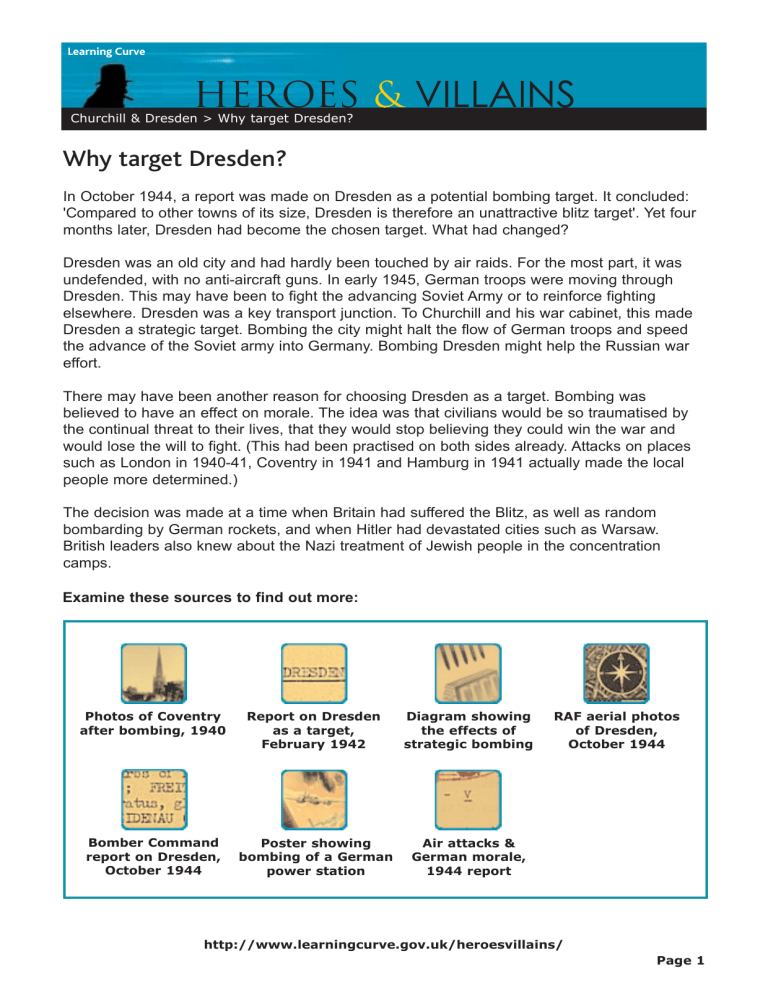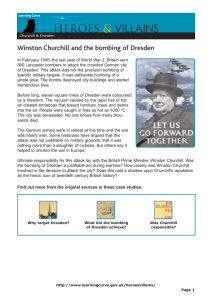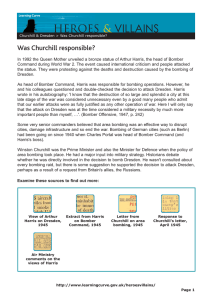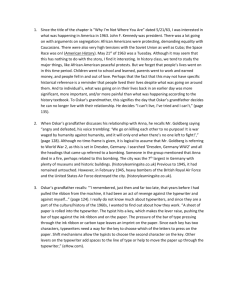VILLAINS HEROES & Why target Dresden?

Learning Curve
HEROES &
Churchill & Dresden > Why target Dresden?
VILLAINS
Why target Dresden?
In October 1944, a report was made on Dresden as a potential bombing target. It concluded:
'Compared to other towns of its size, Dresden is therefore an unattractive blitz target'. Yet four months later, Dresden had become the chosen target. What had changed?
Dresden was an old city and had hardly been touched by air raids. For the most part, it was undefended, with no anti-aircraft guns. In early 1945, German troops were moving through
Dresden. This may have been to fight the advancing Soviet Army or to reinforce fighting elsewhere. Dresden was a key transport junction. To Churchill and his war cabinet, this made
Dresden a strategic target. Bombing the city might halt the flow of German troops and speed the advance of the Soviet army into Germany. Bombing Dresden might help the Russian war effort.
There may have been another reason for choosing Dresden as a target. Bombing was believed to have an effect on morale. The idea was that civilians would be so traumatised by the continual threat to their lives, that they would stop believing they could win the war and would lose the will to fight. (This had been practised on both sides already. Attacks on places such as London in 1940-41, Coventry in 1941 and Hamburg in 1941 actually made the local people more determined.)
The decision was made at a time when Britain had suffered the Blitz, as well as random bombarding by German rockets, and when Hitler had devastated cities such as Warsaw.
British leaders also knew about the Nazi treatment of Jewish people in the concentration camps.
Examine these sources to find out more:
Photos of Coventry after bombing, 1940
Report on Dresden as a target,
February 1942
Diagram showing the effects of strategic bombing
RAF aerial photos of Dresden,
October 1944
Bomber Command report on Dresden,
October 1944
Poster showing bombing of a German power station
Air attacks &
German morale,
1944 report http://www.learningcurve.gov.uk/heroesvillains/
Page 1





